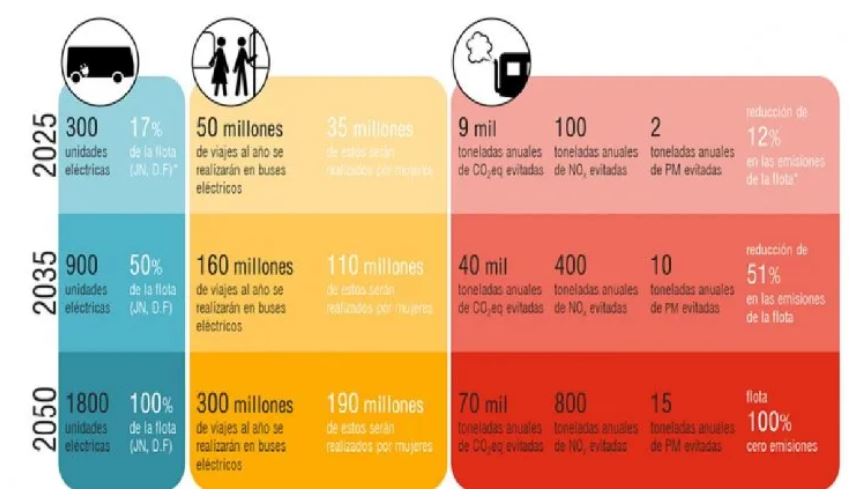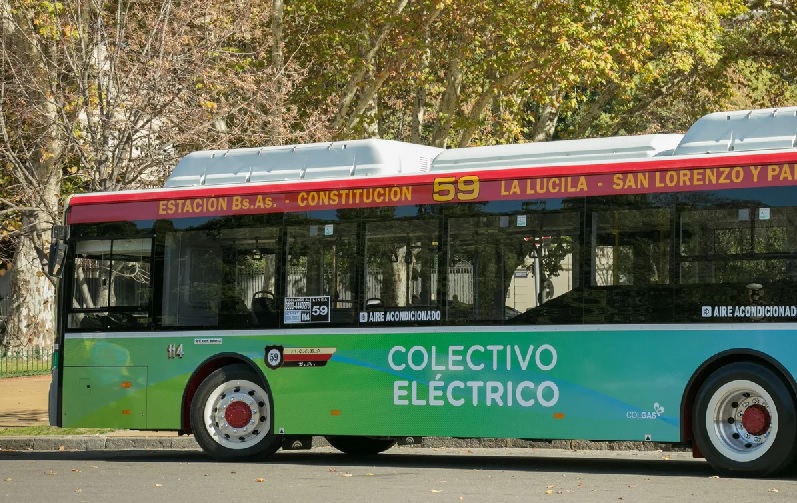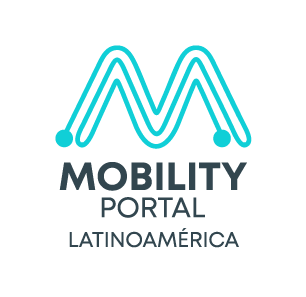Within the framework of the LAIF initiative on Cities and Climate Change, financed by the European Union and implemented by CAF – Development Bank of Latin America and the French Development Agency (AFD), the study on the electrification of the bus system in the Argentinean capital has been completed.
The study proposes three phases of implementation. The first phase of electrification consists of the renewal of 300 buses by 2025, which would allow the city to make 50 million trips per year in the electric fleet and reduce 9,000 tonnes of CO2e per year.
Phase 2 would promote the renewal of 900 buses by 2035 and phase 3 the renewal of 1,800 units by 2050, equivalent to 50% and 100% of the fleet, respectively.
This would avoid the emission of 70,000 tonnes of CO2e per year and 300 million journeys would be made in electric vehicles. An important contribution in a city that has made a commitment to be carbon neutral by 2050.
To implement the electrification process, the study proposes a series of economic, technical, environmental and social criteria to identify the vehicles and bus lines that will be part of each renovation phase.

The stages of the study
The pre-feasibility study was carried out in 3 stages. The first stage of the study consisted of a situation analysis, a definition of indicators and the identification of opportunities for fleet renewal.
As a result of this first analysis, opportunities and challenges were identified at national and district level in terms of electric mobility in 4 pillars: economic, institutional, environmental and regulatory.
Among the most prominent, the lower operating costs of electric buses, the reduction of Greenhouse Gas emissions, which would promote better air quality and health for citizens, the promotion of agreements with technology providers or energy operators, and the development of regulations to promote the inclusion of a minimum percentage of electric fleet in the city.
The second stage of the study consisted of outlining the fleet renewal strategy, the technical and operational feasibility of incorporating battery-powered buses into the city’s public transport system, identifying the most appropriate lines and quantities to make this possible.
At this stage, the adaptation of the project to the city’s current plans for fleet renewal and emissions reduction, such as the Clean Mobility Plan 2017-2035 or the Climate Action Plan 2020-2050, was studied.
Likewise, the goals and commitments set for electromobility in other Latin American cities were studied, paying special attention to those with the highest rates of fleet renewal, such as Bogotá (Colombia), with 297 vehicles renewed per year; San José (Costa Rica), with 156 vehicles per year; Medellín (Colombia), with 134, and Santiago (Chile), with 83.
In this second stage, the short, medium and long-term implementation phases of the project were proposed and validated.
In the third stage, the promoters of the LAIF initiative, together with the Secretariat of Transport and Public Works of the city of Buenos Aires, defined the procurement, operation and financing model for the bus lines to be electrified in the first phase.
LAIF Initiative on Cities and Climate Change
The LAIF Initiative on Cities and Climate Change, financed by the European Union and implemented by CAF and AFD, aims to implement projects on prevention, mitigation and adaptation to climate change in cities in Argentina, Bolivia, Brazil, Colombia, Ecuador and Peru, raise awareness and increase knowledge in the region on climate issues, as well as strengthen capacities for a more effective implementation of public policies.





















